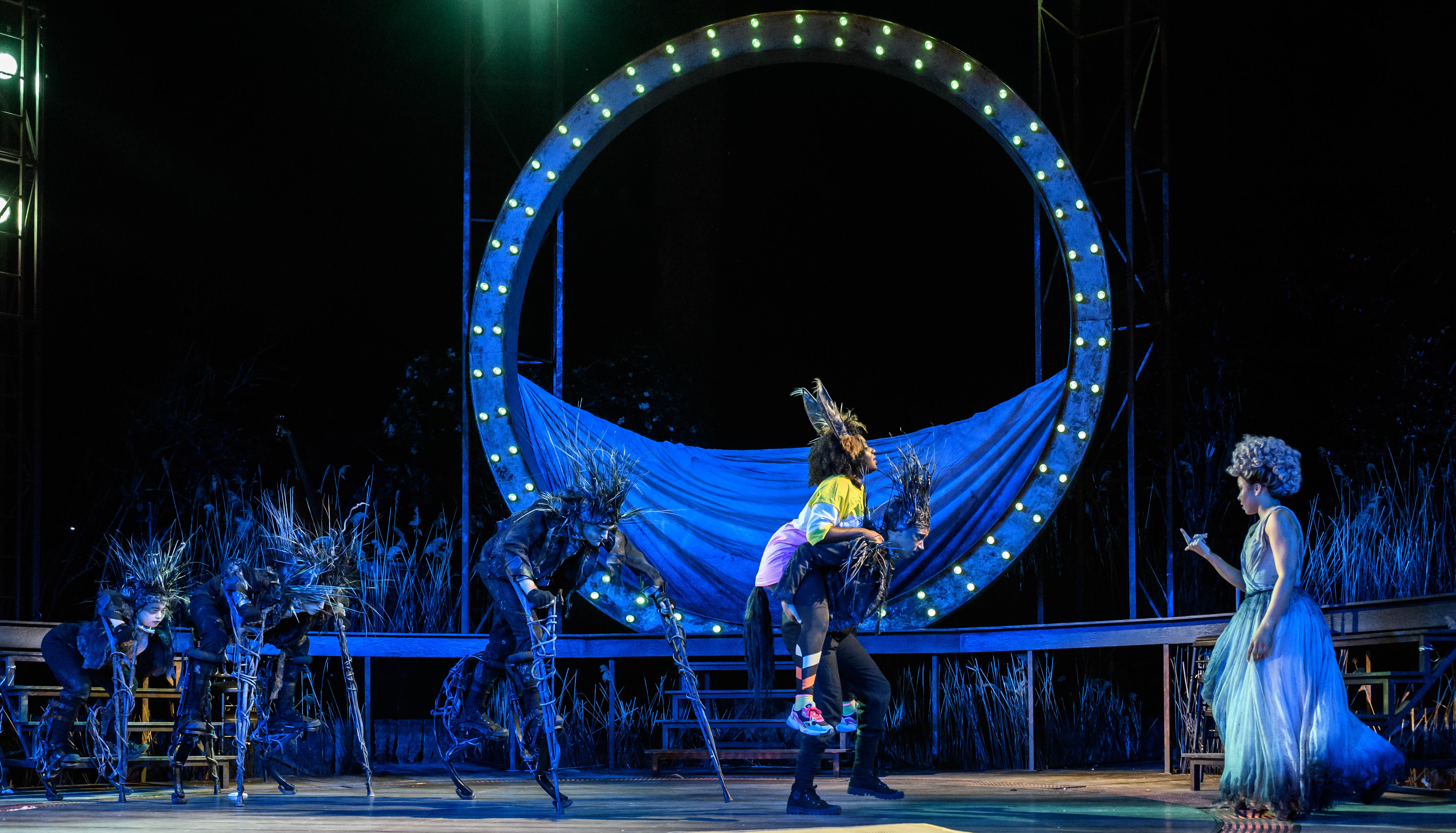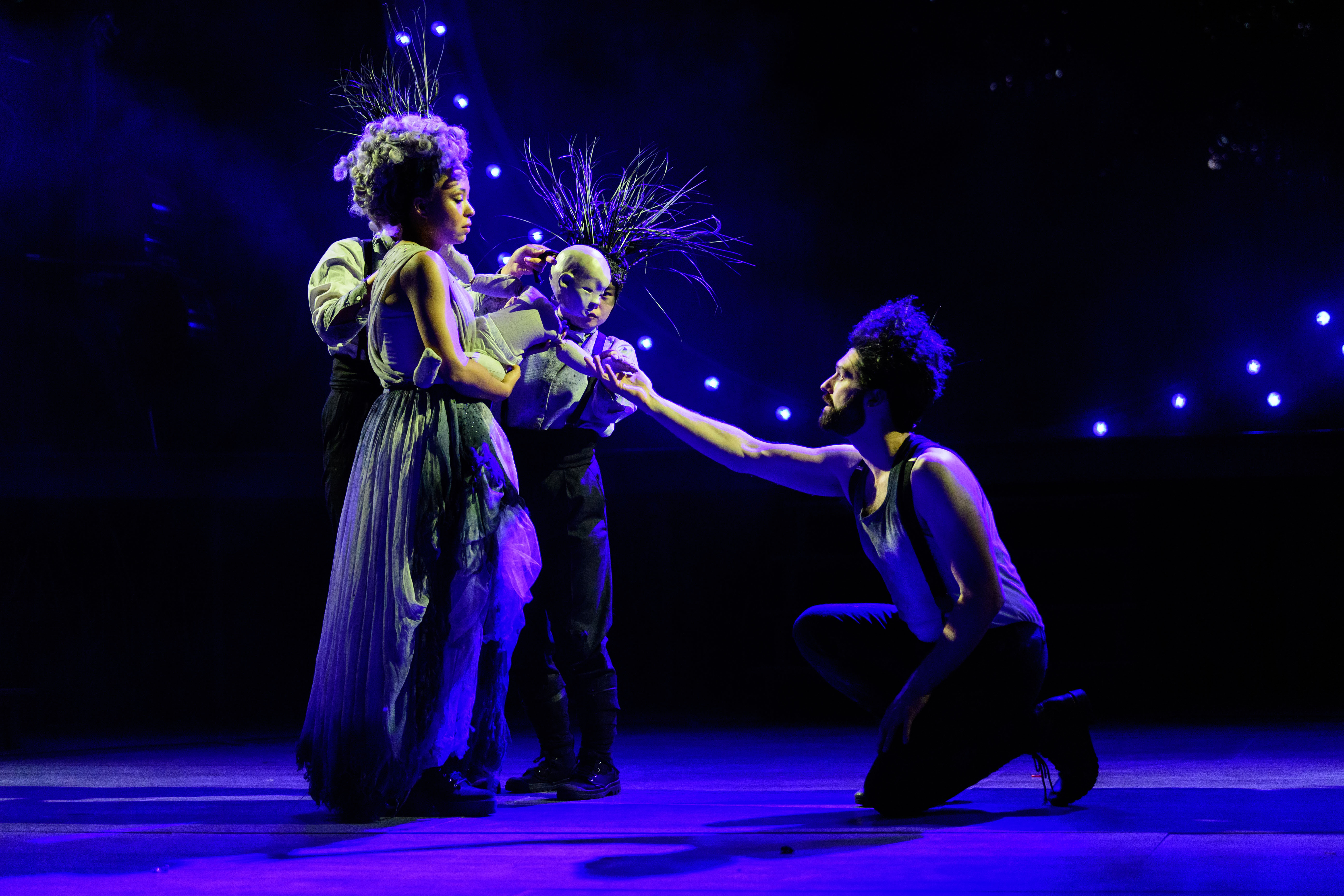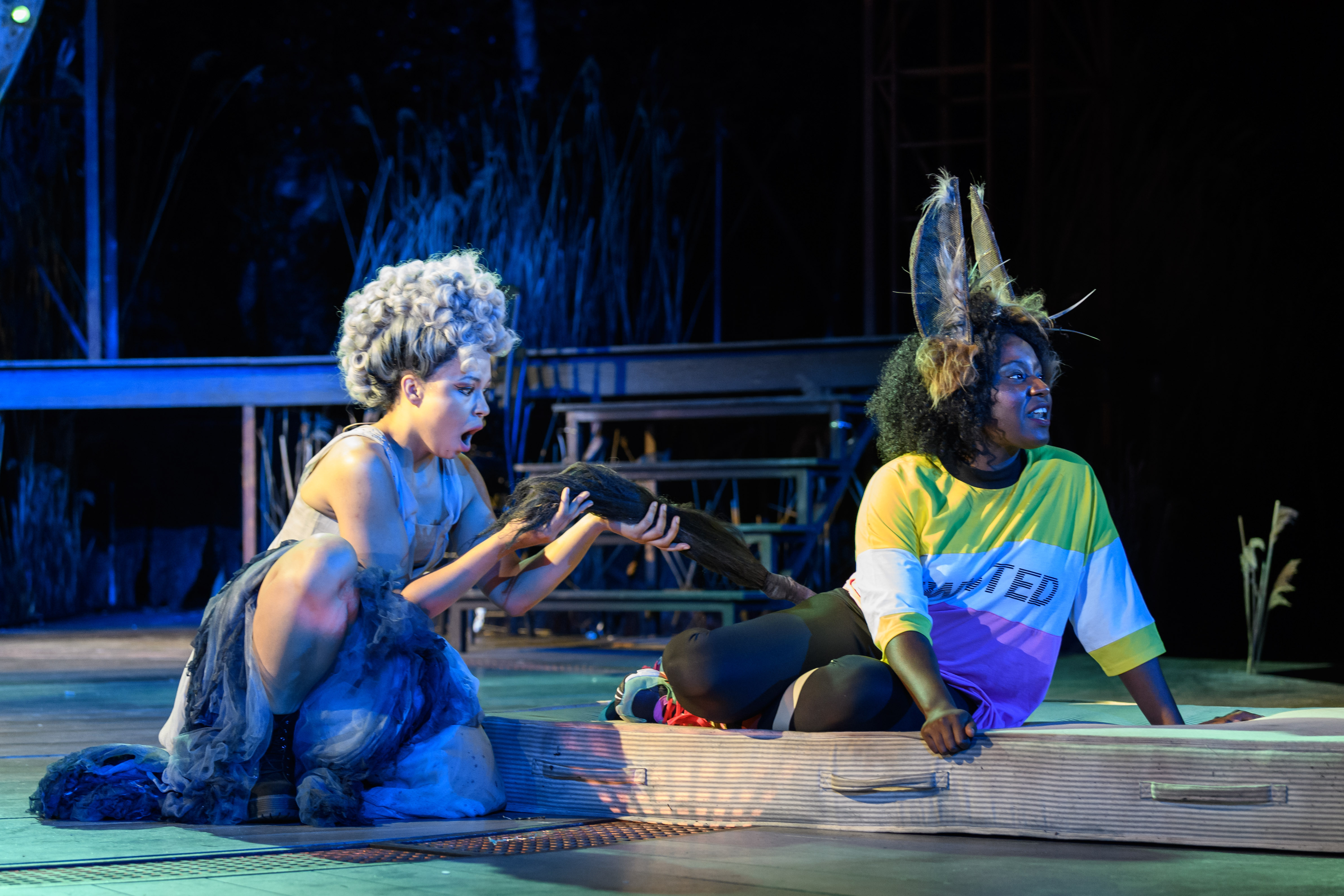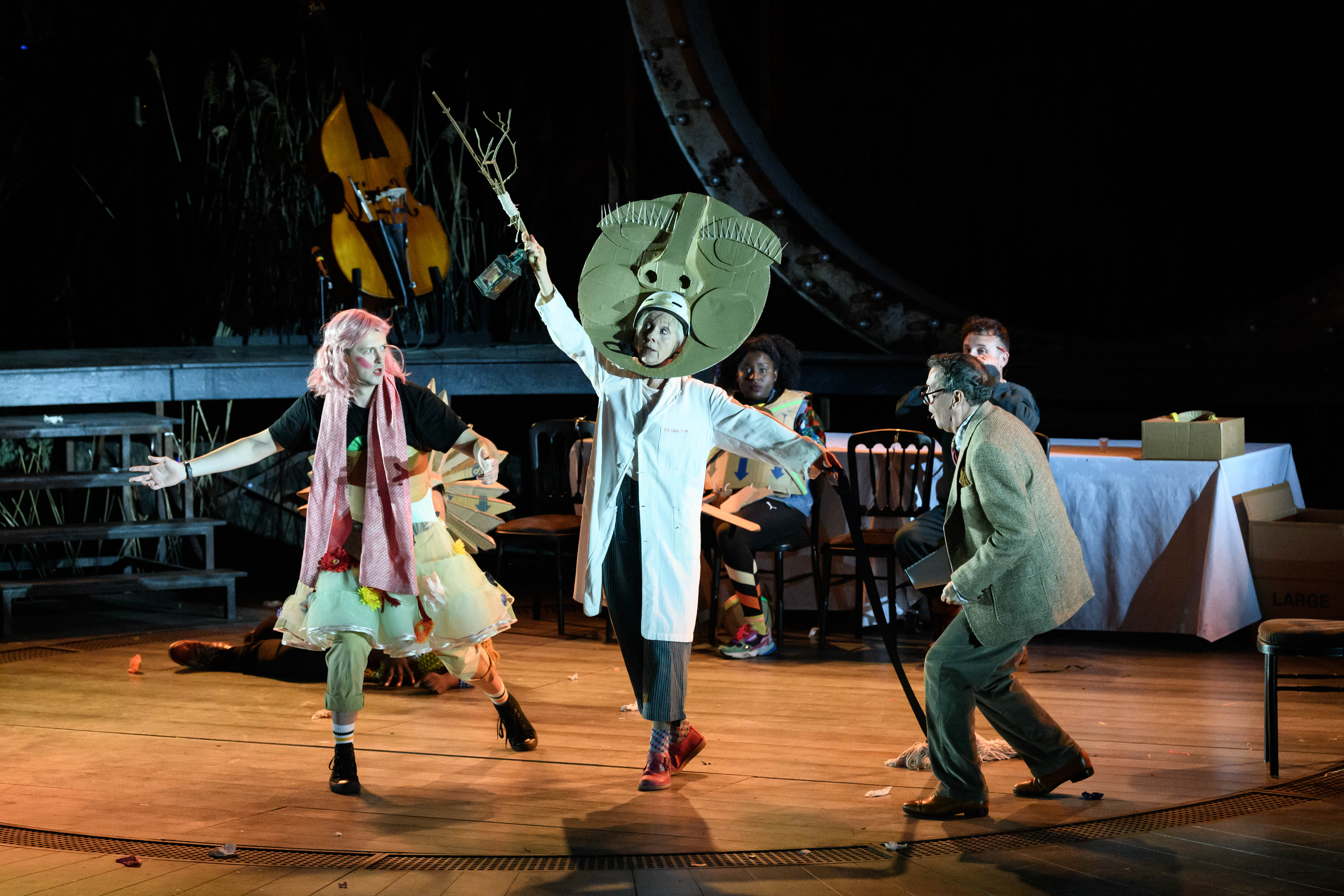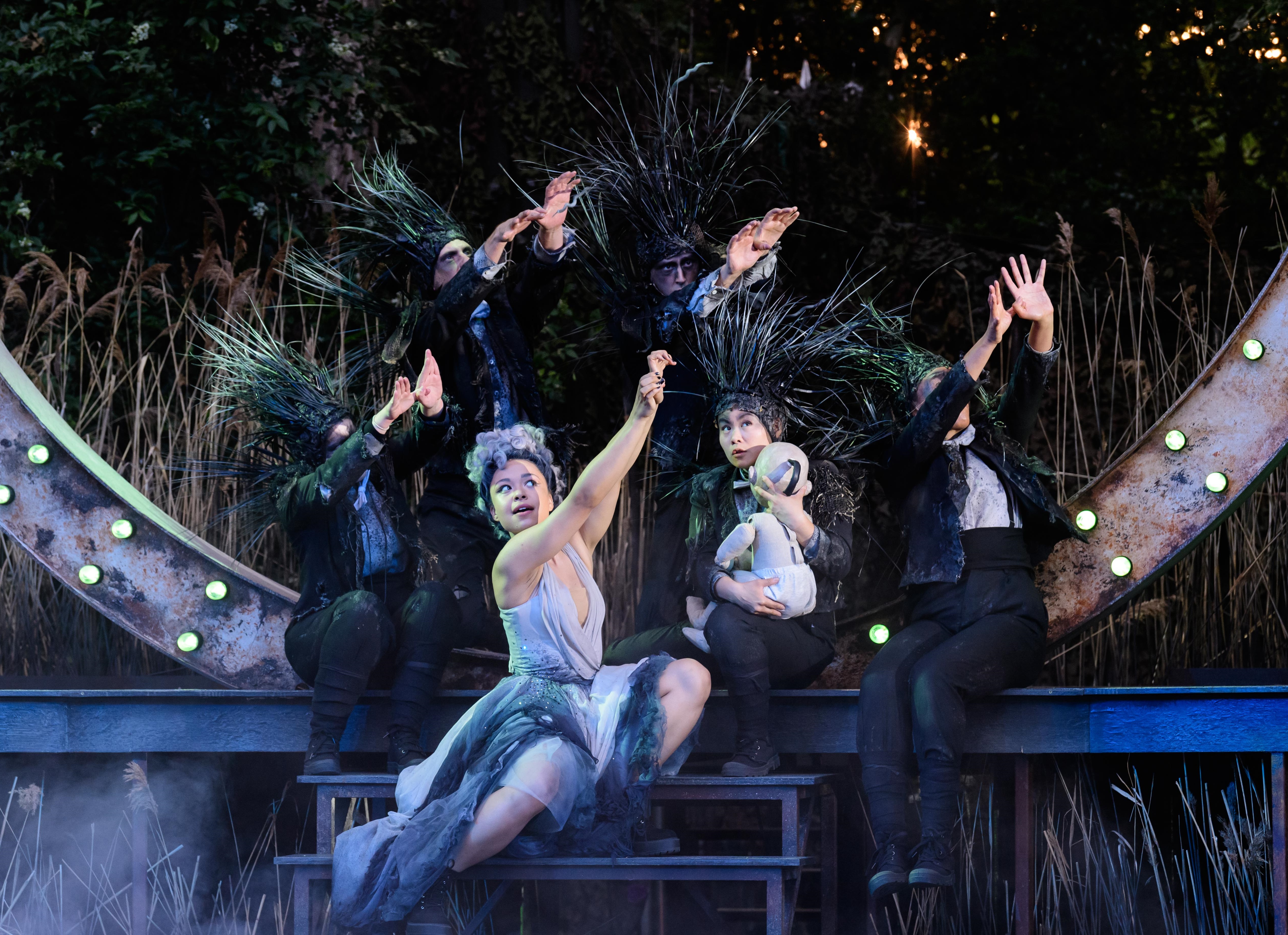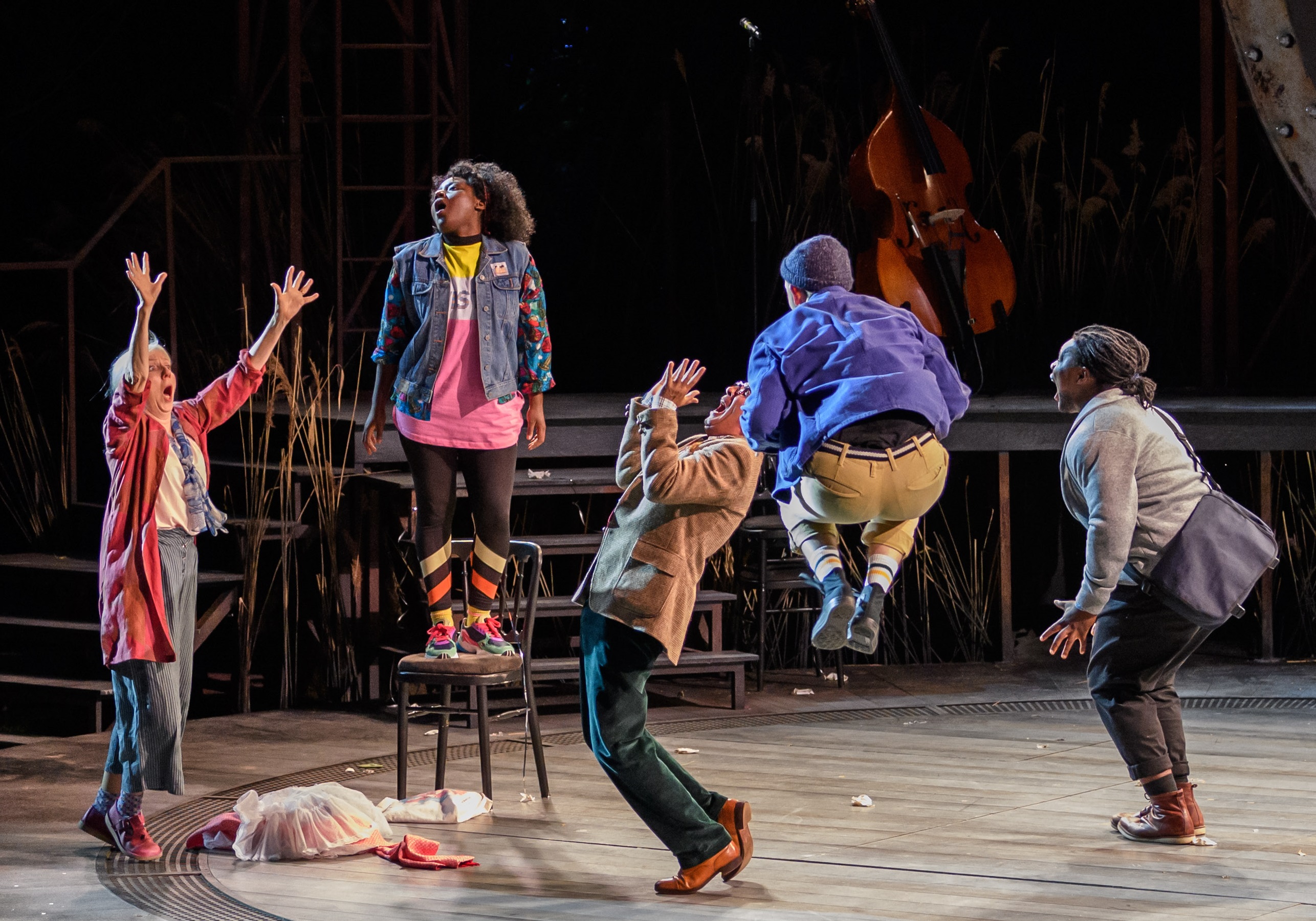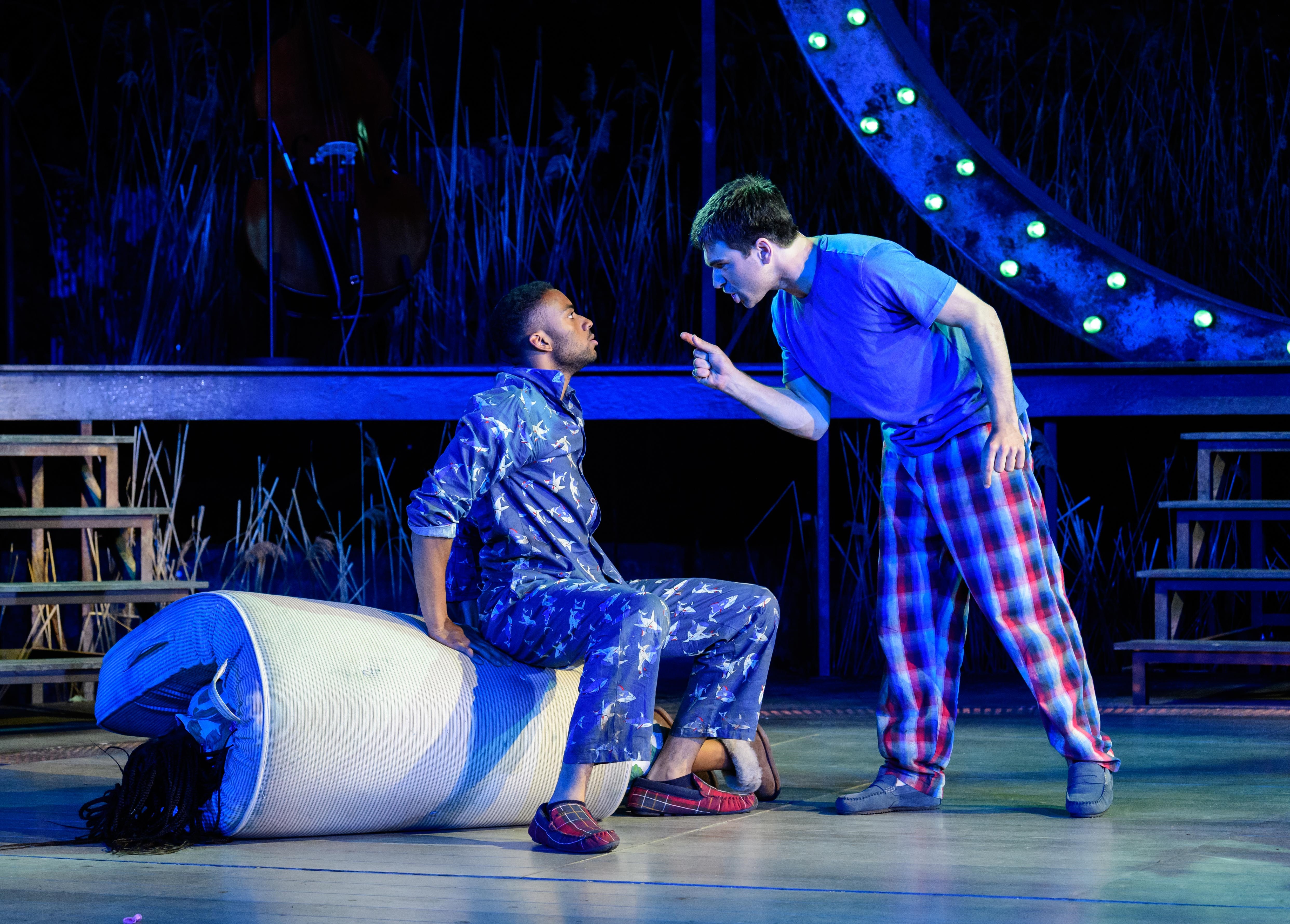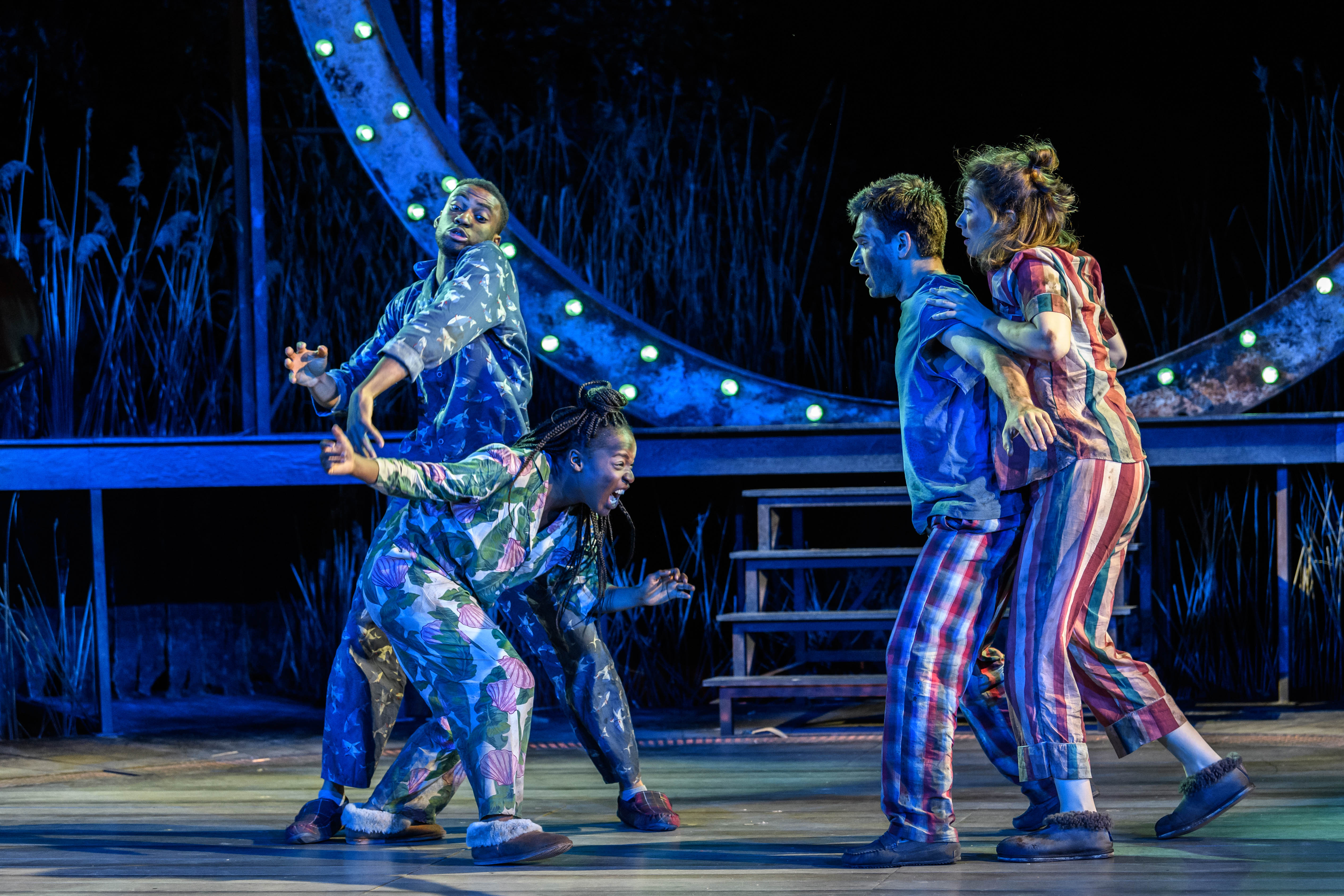The first scene of this William Shakespeare farce, set in the ancient Athenian palace of Duke Theseus (Kieran Hill) and Hippolyta (Amber James), kicks off with a wild pre-wedding celebration.
It includes a vibrant musical backdrop that includes double bass and vocal percussion; the set – augmenting the venue’s exterior stage with just a table, a few chairs and some helium balloons – is simple but effective.
The diverse cast is excellent; not least the Kieran Hill and Amber James – each sprinkling their dual roles with a great deal of charm, wit, playfulness and… dread.
The piece ends where it began; this time, with the entire cast creating some modern dance forms, to the accompaniment of two accordions and the bass.
In between – as the cast splits into distinct groups – are four intertwined stories exploring aspects – and levels – of human agency (i.e. class, love, magic, and negotiation v. domination in group creation).
The diverse cast is excellent; not least the aforementioned Hill and James – each sprinkling their dual roles (Duke Theseus and Oberon, and Hippolyta and Titania respectively) with a great deal of charm, wit, playfulness and…dread.
Gabrelle Brooks’ Hermia and Remy Beasley’s Helena are also excellent; not only ably contributing to the slapstick and physical comedy, but both bringing significant weight – and heartache – to their roles as the (oftentimes) jilted, duped and sidelined ‘love interests’.
Also worthy of mention are Susan Wokoma (Bottom), Myra McFayden (Puck) and Gareth Snook (Egeus/Quince); each one bringing energy and superb comic timing to their roles.
A broad, entertaining, funny, insightful, ‘wall-bothering’ triumph.
As the natural light dims, the open-air setting is augmented with dry ice; Ben Omerod’s excellent Lighting Design effectively evoking the eerie forest setting; indeed, Rachael Canning’s Set Design – utilizing puppetry, spider-leg props and fairies on four-limbed stilts – and Simon Baker and Jay Jones’ Sound Design also add greatly to the story-telling and mood.
Director Dominic Hill keeps everything moving throughout, exploring the venues many physical areas – as well as the actors’ emotional reserves – to help the audience keep up with the play’s many tonal and narrative shifts.
Indeed, several of the biggest laugh-out-loud moments come near the end, during the ‘play-within-a-play’ section; a testament both to the actors’ stamina, and to the directorial pacing.
This play works as a farcical commentary on the perception of control (agency) that humans have over their own lives, the levels of negotiation necessary to create (e.g. social cohesion, partnerships, art, etc.), and the arbitrary – and inarticulate – the nature of ‘love’.
That it works so well in this iteration is a testament to The Bard’s enduring relevance, and to this production team’s creative proficiency.
A broad, entertaining, funny, insightful, ‘wall-bothering’ triumph.























